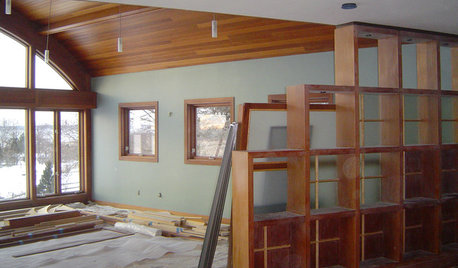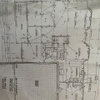No Plumbing/Heating Inspection!
susan148
9 years ago
Related Stories

CONTRACTOR TIPSBuilding Permits: The Inspection Process
In Part 5 of our series on home building permits, we explore typical inspection schedules for a variety of project types
Full Story
CONTRACTOR TIPSBuilding Permits: The Final Inspection
In the last of our 6-part series on the building permit process, we review the final inspection and typical requirements for approval
Full Story
MOVINGHome-Buying Checklist: 20 Things to Consider Beyond the Inspection
Quality of life is just as important as construction quality. Learn what to look for at open houses to ensure comfort in your new home
Full Story
GREEN BUILDINGInsulation Basics: Heat, R-Value and the Building Envelope
Learn how heat moves through a home and the materials that can stop it, to make sure your insulation is as effective as you think
Full Story
FLOORSFloors Warm Up to Radiant Heat
Toasty toes and money saved are just two benefits of radiant heat under your concrete, wood or tile floors
Full Story
FLOORSIs Radiant Heating or Cooling Right for You?
Questions to ask before you go for one of these temperature systems in your floors or walls (yes, walls)
Full Story
REMODELING GUIDESHouzz News: Remodeling Heats Up
With the U.S. economy showing signs of recovery, homeowners invest in quality, livability and "a place to make their own"
Full Story
CONTRACTOR TIPSYour Complete Guide to Building Permits
Learn about permit requirements, the submittal process, final inspection and more
Full Story
MOVINGHiring a Home Inspector? Ask These 10 Questions
How to make sure the pro who performs your home inspection is properly qualified and insured, so you can protect your big investment
Full Story
HOUSEKEEPING10 Feel-Good Household Tasks for Fall
Scrub, organize and inspect now to sail through the holidays with a light heart and a clean conscience
Full StoryMore Discussions









bus_driver
susan148Original Author
Related Professionals
Lansdale Architects & Building Designers · Pedley Architects & Building Designers · Chula Vista Home Builders · South Farmingdale Home Builders · Tampa Home Builders · Asheboro General Contractors · Chatsworth General Contractors · Forest Grove General Contractors · Fort Pierce General Contractors · Hayward General Contractors · Kailua Kona General Contractors · Mount Laurel General Contractors · Nashua General Contractors · National City General Contractors · Shaker Heights General ContractorsMFatt16
robin0919
renovator8
robin0919
susan148Original Author
manhattan42
robin0919
manhattan42
jennybc
renovator8
sombreuil_mongrel